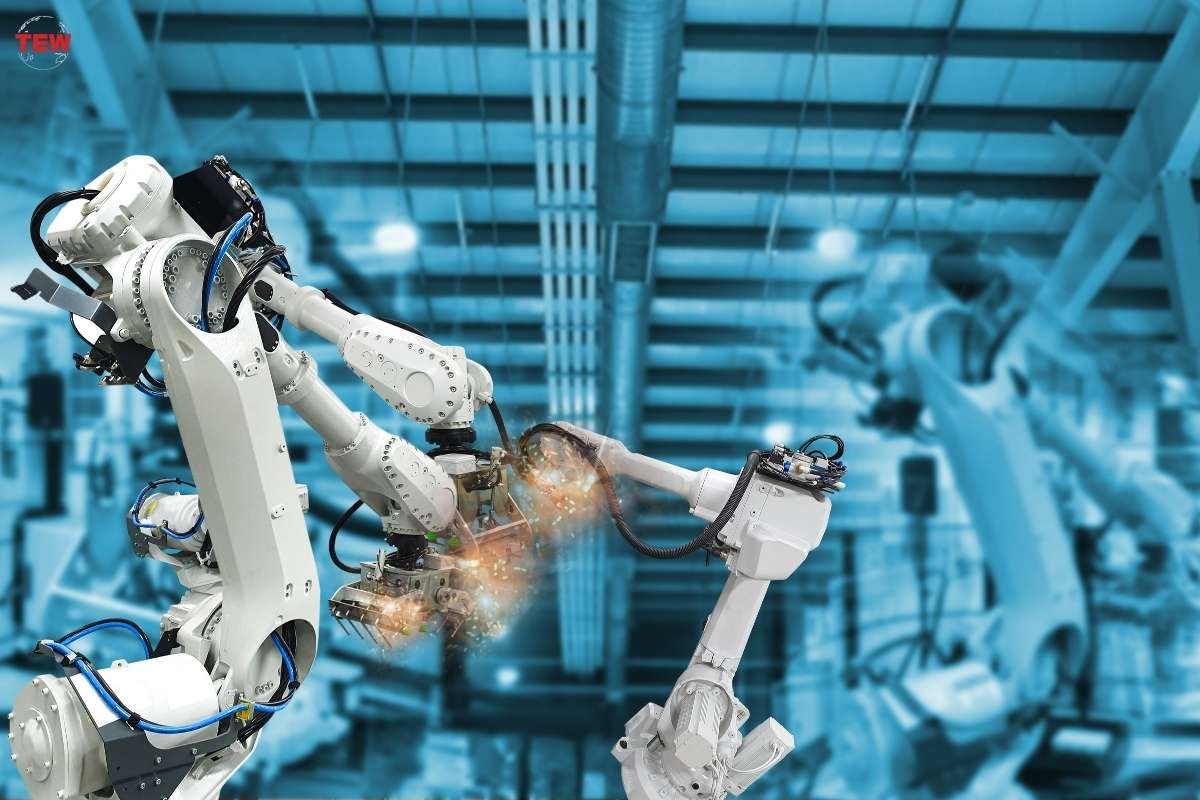In today’s competitive industrial landscape,
In today’s competitive industrial landscape, Industrial Business Leaders are constantly on the lookout for technologies that can streamline operations, enhance productivity, and improve the bottom line. From the factory floor to the executive suite, adopting cutting-edge tools and technology is no longer a luxury, but a necessity for staying ahead. Innovations such as the Internet of Things (IoT), big data analytics, and artificial intelligence are transforming the industrial realm. Keep reading to explore how these advancements are reshaping the future of manufacturing and beyond.
are constantly on the lookout for technologies that can streamline operations, enhance productivity, and improve the bottom line. From the factory floor to the executive suite, adopting cutting-edge tools and technology is no longer a luxury, but a necessity for staying ahead. Innovations such as the Internet of Things (IoT), big data analytics, and artificial intelligence are transforming the industrial realm. Keep reading to explore how these advancements are reshaping the future of manufacturing and beyond.
Adopting the Internet of Things (IoT) for Enhanced Industrial Operations
The incorporation of IoT in industry has revolutionized operational management by embedding sensors in equipment for real-time data collection, facilitating proactive maintenance and minimizing downtime. This technology optimizes inventory tracking, streamlines supply chains, and ensures uninterrupted operations. By fostering connectivity between machinery and management systems, issues are flagged before they escalate, enhancing overall equipment effectiveness (OEE).
This interconnectedness poses challenges like data security, requiring robust cybersecurity measures. Continuous training is essential to equip teams with the skills needed to manage advanced IoT frameworks effectively. Alongside IoT, instant financial apps and hydrogen fuel cell technology are emerging as transformative forces in industrial settings, further shaping the landscape of operational efficiency and sustainability.

Utilizing Cloud Computing for Improved Collaboration and Scalability
Cloud computing has transformed business operations, offering scalable resources and enabling real-time collaboration across multiple sites. It breaks down silos in the industrial sector, fostering innovation and facilitating complex simulations without expensive hardware. The cloud provides robust disaster recovery solutions, ensuring continuity in the face of physical damage.
Migrating to the cloud requires careful planning to integrate legacy systems smoothly and avoid system outages or data loss. Expert IT teams play a crucial role in ensuring a seamless transition, enhancing operational agility. Moreover, cloud integration has led to the emergence of services like the instant financial app, streamlining transactions and optimizing financial management for industrial businesses. Industrial Business Leaders can leverage these platforms for real-time insights and effective cash flow management.

Leveraging Big Data Analytics for Strategic Decision Making of Industrial Business Leaders
In today’s industrial landscape, the volume of data produced is staggering, yet it holds immense potential for valuable insights. Big data analytics is the key to unlocking these insights, enabling businesses to translate vast datasets into actionable strategies. It facilitates predictions on market trends, customer behaviors, and process efficiencies, revolutionizing decision-making.
Advanced analytics empowers companies to uncover cost-saving opportunities and optimize resource allocation. Hidden patterns in production cycles or energy consumption are now revealed, allowing for precise adjustments that can yield significant savings and promote environmental sustainability.
Fostering a data-centric culture within organizations is crucial. Teams that grasp the power of data analytics often drive innovation and propel their companies to strategic excellence. Strong support from top management is essential in cultivating this culture. Big data analytics demands substantial investment in technology and talent. Companies must weigh this investment against the potential long-term value, taking calculated risks as they navigate the digital era.
The Impact of Artificial Intelligence on Manufacturing Efficiency
Artificial Intelligence (AI) is revolutionizing the industrial sector by optimizing manufacturing processes. AI-driven algorithms predict machine failures, automate quality control, and customize production to individual customer needs, previously impossible at scale.
In robotics, AI has led to the emergence of collaborative robots or “cobots,” working alongside humans and adapting to new tasks. This collaboration enhances flexibility and productivity, giving businesses a competitive edge.
Ethical considerations about workforce displacement and AI decision-making must be addressed. Transparent policies on AI deployment and its impact on the workforce are essential for responsible implementation.
The effectiveness of AI hinges on high-quality data. Industrial leaders must ensure accurate and comprehensive data to enable informed decision-making, prioritizing vigilance in data management.

Advances in Robotics and Automation for Competitive Advantage
The manufacturing sector is increasingly using robotics and automation to boost competitiveness and safety. These Industrial Business Leaders advanced systems, equipped with machine learning, offer improved performance and adaptability, driving innovation.
Hydrogen fuel cell technology shows promise for clean energy solutions in manufacturing, reducing carbon footprints and long-term costs. A skilled workforce is vital for managing and maintaining these complex systems through ongoing education and training programs.
Overall, industrial business leaders who harness the power of IoT, big data analytics, AI, cloud computing, and robotics position their companies for success in the 21st century. By embracing these transformative technologies, businesses can optimize their operations, drive efficiency, and sustainably secure a competitive edge in the ever-evolving industrial landscape.




